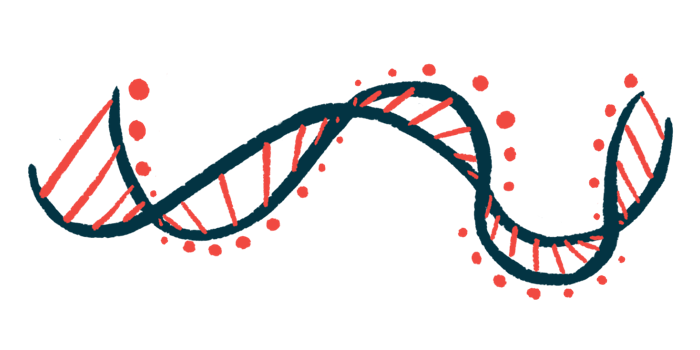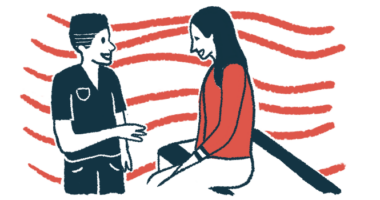New CD46 Gene Mutation ID’d in Toddler With Recurrent aHUS
Very rare mutation found in 13-month-old 'prediposes' girl to disease

A new mutation in the CD46 gene linked to recurrent atypical hemolytic uremic syndrome (aHUS) was identified in a 13-month-old girl, according to a case report from Denmark.
As described in the report, the mutation affected the activity of the complement cascade — a part of the immune system known to drive aHUS.
The study, “Novel homozygous CD46 variant with C-isoform expression affects C3b inactivation in atypical hemolytic uremic syndrome,” was published in the European Journal of Immunology.
Very rare mutation affects CD46 protein levels in cells
A rare disease, aHUS is characterized by hemolytic anemia, or red blood cell destruction, low levels of platelets, and the formation of blood clots in small blood vessels.
The condition arises through problems with the workings of the complement system — a set of more than 50 proteins that form part of the body’s immune defenses — often due to mutations in complement-related genes.
The CD46 gene contains instructions to produce a cell membrane protein, called CD46, that protects cells from injury by complement activation. It interacts with complement factor I, mediating the inactivation of C3b/C4b complement proteins.
Currently, over 60 CD46 gene mutations are associated with aHUS. These genetic variants have been found in 10–15% of all pediatric aHUS cases. CD46-associated susceptibility to aHUS is more often linked to dominant mutations, meaning that only one mutated gene copy is needed for the disease to develop.
A team led by researchers at Aarhus University identified a new CD46 mutation in both gene copies, one inherited from each parent, in a toddler with recurrent aHUS.
The girl was diagnosed with aHUS when she was 13 months old. She had been hospitalized after a few days with fatigue and dark urine. Blood tests showed high levels of creatinine, a marker of poorer kidney function, and severely low platelet numbers (thrombocytopenia), along with too much acid in her blood (metabolic acidosis) and anemia.
Clinicians suspected of HUS and ordered genetic tests to look for possible causative mutations. These tests identified a previously unreported mutation, called c.602C>T, in both copies of the CD46 gene, which was deemed to be highly rare.
Additional tests also revealed the mutation was present in one copy of the CD46 gene of her parents. No other family members had been diagnosed with aHUS or experienced similar symptoms, including the toddler’s older brother.
The child had two flares, or episodes of disease worsening, during follow-up: one when she was at 21 months old and another when she was nearly 3 years old.
She was hospitalized and treated with Soliris (eculizumab), a monoclonal antibody that binds to the complement system protein C5, preventing the system from being overly active.
Researchers conducted further analyses to understand how the mutation affected the CD46 protein and the complement system. They found that the mutation led to a markedly lower levels of CD46 in blood cells.
Additional tests evaluated the ability of C3b binding to CD46 in cells carrying the normal CD46 gene versus cells carrying the mutated gene. In cells with the mutated CD46 gene, C3b binding to the cell’s membrane was markedly reduced. In fact, further studies showed that the mutation was linked to a particular protein variant, called an isoform, that bound markedly less C3b compared with other isoforms.
In identifying a new CD46 mutation “that predisposes to aHUS development,” this study “contribute[s] to the understanding of how disrupted CD46 integrity and expression cause dysregulation of the complement system and aHUS development,” the researchers concluded.







